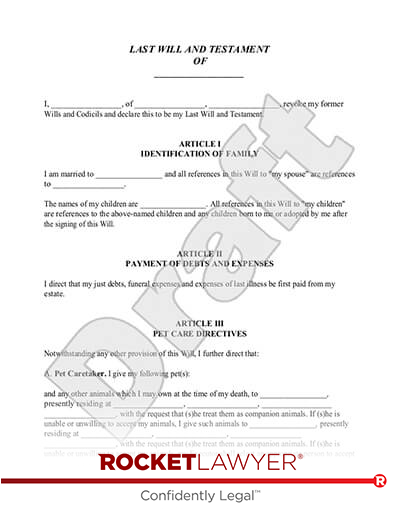A common strategy for declaring a last will invalid is to argue that the decedent was not of sound mind and was unable to understand what he or she was doing when the will was formed. Another strategy is to argue that the last will was created under the undue influence or coercion of another person. The court will call the witnesses to the will or adduce their affidavits to determine the validity of the document.
Some states allow last wills to include a "no-contest" clause to discourage such challenges. This clause effectively states that anyone who unsuccessfully contests the will receives nothing.
If the will is declared invalid, the assets in question fall into intestacy . Generally, intestate distribution follows family relations with assets awarded first to the spouse, then to children, and so on.
Disagreements over a last will can be damaging to family relationships. A family meeting with a neutral third party can help resolve any disputes outside of court. However, this is not always possible. For help resolving a contested last will, contact an estate planning attorney.
Related content:
- How to write a will
- What is a living will?
- Will vs. Estate Plan
- Find more information about wills
- Start your will today
This article contains general legal information and does not contain legal advice. Rocket Lawyer is not a law firm or a substitute for an attorney or law firm. The law is complex and changes often. For legal advice, please ask a lawyer.
